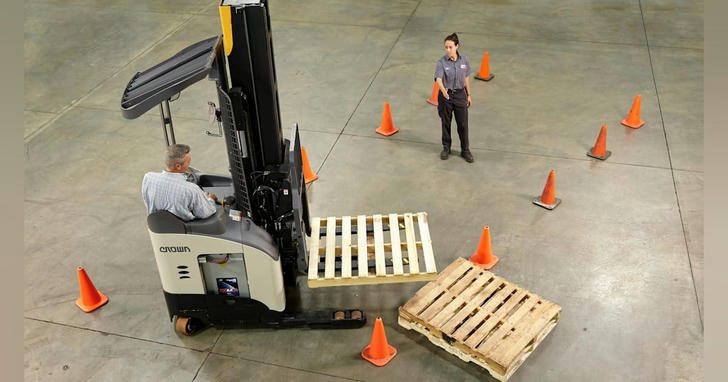Mastering Forklift Operation: A Comprehensive 7-Day Training Course
Operating a forklift requires skill, precision, and an understanding of safety protocols. Many workplaces mandate formal training before allowing employees to handle forklifts due to the potential risks involved. A structured 7-day forklift operator training course provides both theoretical knowledge and hands-on experience to ensure competency and compliance with workplace regulations. This article explores the structure of a 7-day training course, what trainees can expect each day, and examples to illustrate key learning points.

Why a 7-Day Training Course?
A 7-day course is an optimal duration for new operators to develop essential skills while allowing for progressive learning. Unlike shorter crash courses, a week-long training ensures trainees have enough time to absorb critical concepts, practice under supervision, and gain confidence in real-world forklift operations.
Day-by-Day Breakdown of the 7-Day Forklift Training Course
Day 1: Introduction to Forklifts and Safety Basics
On the first day, trainees receive an introduction to forklift operations, focusing on safety regulations and the importance of proper training. Theoretical instruction covers:
- OSHA or local regulatory requirements
- Types of forklifts and their uses
- Common hazards and accident prevention strategies
- The importance of personal protective equipment (PPE)
Example: A trainee might watch a video demonstrating real forklift accidents, highlighting the consequences of unsafe practices. This visual approach emphasizes the need for caution and adherence to safety protocols.
Day 2: Understanding Forklift Components and Pre-Operational Checks
Trainees learn about different forklift parts and how to conduct pre-operational inspections to ensure safety and functionality. Key lessons include:
- Identifying controls and indicators
- Checking fluid levels, brakes, tires, and hydraulics
- Recognizing faulty equipment before operation
Example: Each trainee is assigned a forklift and must perform a checklist-based inspection. An instructor then reviews the checklist, pointing out any missed details to reinforce thoroughness.
Day 3: Basic Maneuvering and Load Handling
On the third day, trainees move to practical driving exercises, focusing on fundamental maneuvers such as:
- Starting and stopping procedures
- Moving forward and reversing safely
- Turning in tight spaces
- Understanding load balance and center of gravity
Example: Trainees navigate a basic obstacle course with an empty forklift to get a feel for its responsiveness. They practice precise turns and controlled stops to avoid knocking over cones or barriers.
Day 4: Advanced Load Handling Techniques
Building on the previous day's lessons, this session covers proper lifting, stacking, and transporting of loads. Topics include:
- Proper lifting angles to prevent tipping
- Handling different load sizes and weights
- Avoiding common mistakes such as overloading
- Stacking loads securely on pallets and racks
Example: Each trainee is given a set of different-sized boxes to lift and stack on shelves. The instructor evaluates their technique and provides feedback on how to improve efficiency and safety.
Day 5: Operating in Different Environments
Forklifts are used in diverse settings, from warehouses to outdoor construction sites. On this day, trainees experience:
- Operating on uneven surfaces
- Navigating ramps and inclines
- Working in confined spaces
- Handling loads in high-traffic areas
Example: A simulated work environment is set up, requiring trainees to maneuver around moving obstacles (pedestrians or other forklifts) to complete a set task, such as loading pallets onto a truck.
Day 6: Emergency Procedures and Troubleshooting
Trainees learn how to respond to emergencies, such as:
- Brake failure or hydraulic malfunctions
- Evacuating safely in case of fire or gas leaks
- Handling tip-over situations
Example: An instructor demonstrates what to do if a forklift starts tipping over, emphasizing the importance of staying inside the vehicle with a firm grip on the steering wheel instead of jumping out, which can lead to severe injuries.
Day 7: Evaluation and Certification
On the final day, trainees undergo a comprehensive evaluation consisting of:
- A written test on theoretical knowledge
- A practical skills assessment, including maneuvering, load handling, and emergency responses
Successful trainees receive a forklift operator certification, valid for a set period (usually three years), after which they must complete refresher training.
Example: A trainee must demonstrate all acquired skills by completing a full set of forklift tasks, such as picking up a load, navigating a course, and placing it securely in a designated area without mistakes.
Benefits of the 7-Day Forklift Training Course
- Increased Confidence and Skill Mastery – Gradual learning allows trainees to build confidence while refining their handling skills.
- Enhanced Workplace Safety – Proper training significantly reduces the risk of workplace accidents and injuries.
- Regulatory Compliance – Employers ensure compliance with safety laws, avoiding potential legal penalties.
- Better Employment Opportunities – A certified forklift operator is more attractive to employers, increasing job prospects in warehousing, logistics, and construction industries.
- Reduced Equipment Damage – Trained operators are less likely to damage forklifts, inventory, or workplace infrastructure.
Conclusion
A well-structured 7-day forklift operator training course provides an ideal balance of theoretical knowledge and hands-on practice. By gradually introducing new skills and reinforcing safety principles, trainees become competent and confident operators. Investing in proper training benefits both employees and employers by ensuring a safer, more efficient, and compliant workplace. If you are considering a career as a forklift operator, enrolling in a comprehensive 7-day training program is a crucial first step toward success.
